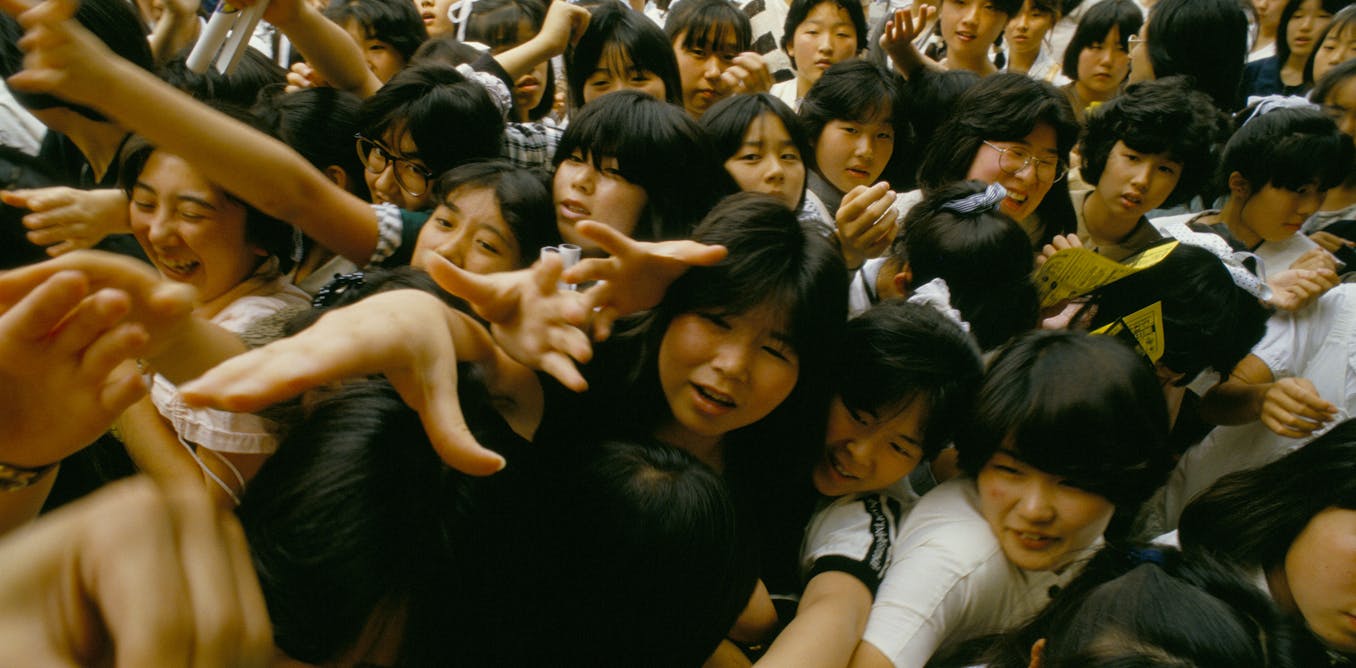Now Reading: Oshikatsu, the fandom phenomenon Japan hopes can boost its flagging economy
-
01
Oshikatsu, the fandom phenomenon Japan hopes can boost its flagging economy
Oshikatsu, the fandom phenomenon Japan hopes can boost its flagging economy

In Tokyo’s vast Shinjuku railway station, posters are typically used for advertising products like cosmetics, food, and new movies. However, every now and then, you might come across a poster displaying a birthday message and a photo of a young man, often from a boy band and usually with striking features.
These specialized posters are commissioned by advertising companies and funded by devoted fans. They are part of a trend known as “oshikatsu,” a term coined in recent times combining the Japanese words for “push” and “activity.”
Oshikatsu involves fans going to great lengths to support their favorite “oshi,” which can be an entertainer, an anime or manga character, or a group they admire and wish to promote.
This support often involves financial contributions, such as attending events, concerts, and purchasing merchandise like CDs, posters, and other collectibles. Fans also engage in activities to boost their idol’s popularity, such as sharing content on social media, participating in campaigns, and creating fan fiction or artwork.
The concept of oshikatsu emerged from fans’ desire for a closer connection to their idols. The term gained traction on social media in 2016 and became popular as a hashtag on Twitter in 2018. In 2021, oshikatsu was nominated as a candidate for Japan’s word of the year, indicating its mainstream acceptance.
Now, corporate Japan is taking notice of oshikatsu as a potential driver of consumer spending, especially as the country aims to reignite economic growth amid rising wages and changing consumer habits. Oshikatsu is no longer limited to subcultures or young people but has garnered support from older age groups as well.
Research shows that oshikatsu activities fulfill a deep need for connection, validation, and belonging among individuals, particularly in a society where traditional relationships are evolving. The trend reflects a broader societal shift towards valuing intangible services that cater to emotional needs, indicating a changing landscape in Japan’s economy and society.






